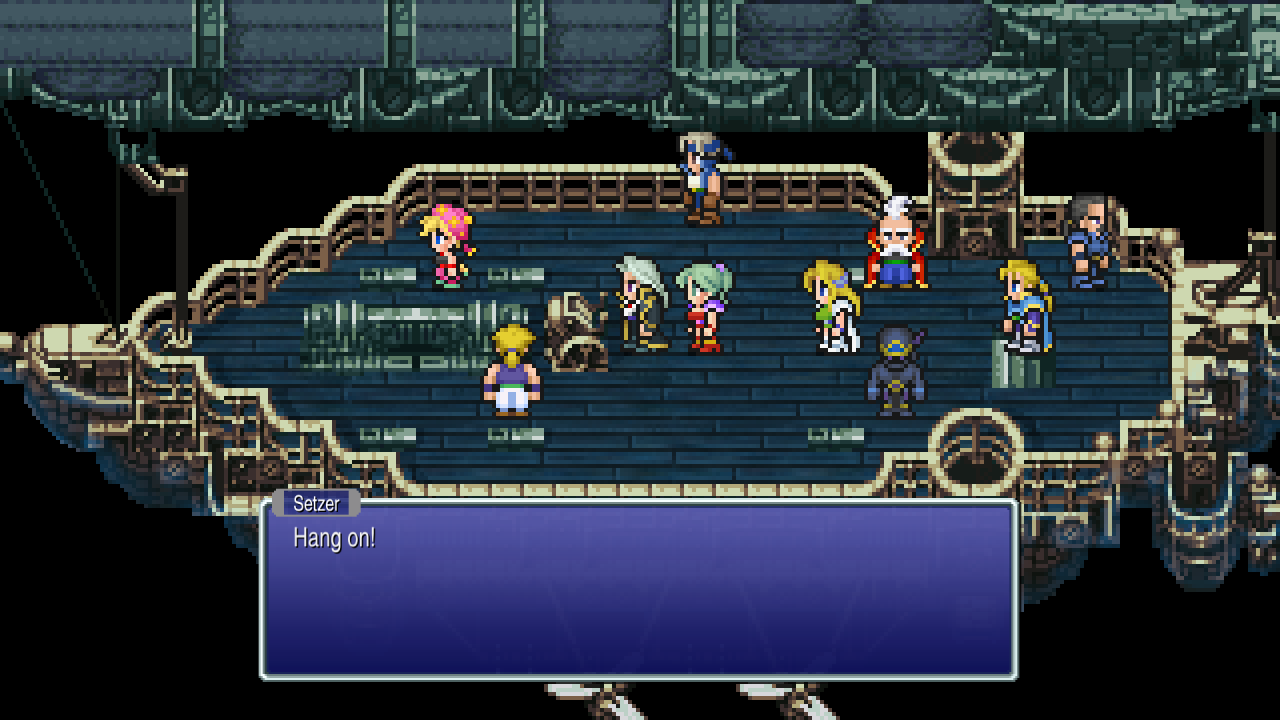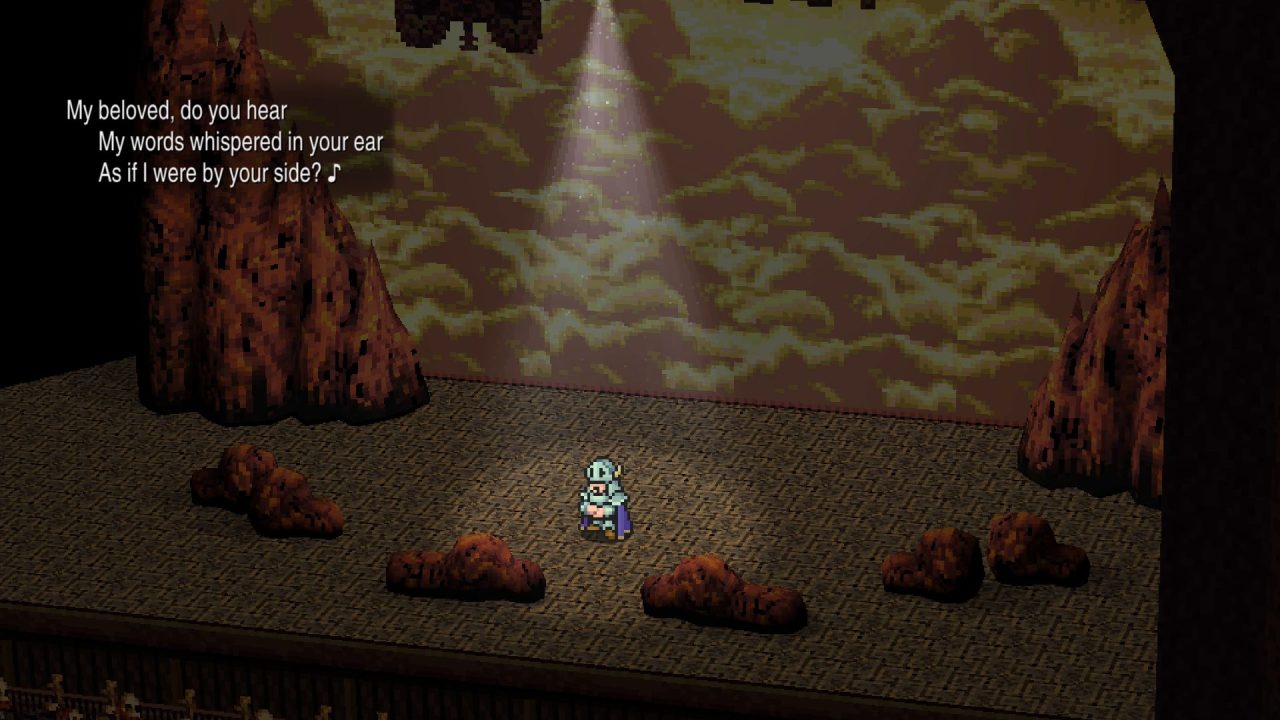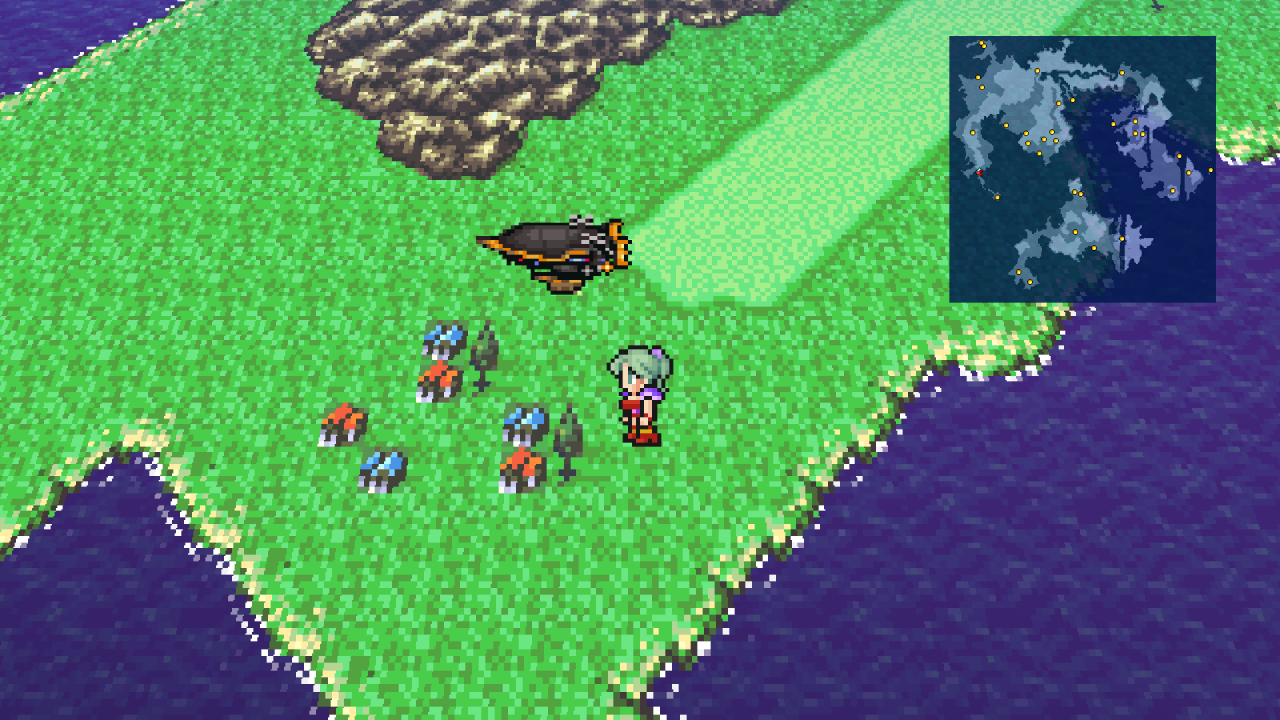The Final Fantasy series has cemented itself in video game history as not only one of the most prolific franchises, but perhaps the highest quality over its lifespan. Sure, series like Shin Megami Tensei, Dragon Quest, and Elder Scrolls have similar market and fan appeal, but you’ll be hard-pressed to find an RPGFan who doesn’t love Final Fantasy. And while everyone’s got their favorite Final Fantasy, few can dispute the masterpiece that Final Fantasy VI is. So, here, with Final Fantasy VI Pixel Remaster, we have a legendary title within a legendary series remastered on multiple platforms for a new generation to discover and enjoy. Question is—are we viewing this game through rose-tinted glasses or does it stand up to the test of time?
Enter Terra Branford, magitek armor and all, as she traipses into Narshe in search of a fabled esper, a magical being considered a myth in VI’s day and age. Wouldn’t you know it, the darn thing actually exists, and what’s more, the Empire she serves wants icy bird’s power to do all sorts of naughty this-or-that. Of course, the good Ms. Branford doesn’t serve the Empire of her own free will, and after a tumultuous battle with the formerly known Tritoch, she awakens in a bed with the mind-control device removed. Off she goes in search of a rebel force named the Returners in order to thwart the Empire and its quest for world domination.
As most of us know, the story ventures far beyond this simple introduction, and this is one of Final Fantasy VI’s crowning achievements: non-linearity. Now, we all know open-world, non-linear storytelling is a common feature in today’s games, and I’m not here to say we owe VI for what it did for video games and blah blah blah; what I want to state here is that even by today’s standards, this storytelling is top tier. Yes, it stands the test of time, and while I may be suffering a bout of nostalgia, I have made great efforts to separate myself from this malady and try to view the story through the lens today demands.

Truth is: VI’s twists and turns, while sometimes predictable, are delivered in a way that make us want to know what happens next, endearing us to characters whose simple animations and colorful dialogue give each a unique voice. We have our central cast—Terra, Celes, Locke, Edgar, and Sabin—and our tertiary cast—Strago, Relm, Shadow, and Gau. Yet, each plays their part well, and even some of the tertiary party members have stories worth seeking out should players have the background knowledge or desire to uncover the secrets on their own.
Story meets gameplay, especially at the halfway point, and for you whipper-snappers who haven’t played it yet and want to know if this is for you, trust me when I say that all hell breaks loose. Everything gets turned on its head and players must pick up the pieces in any way they desire. Let me repeat that: any way they desire. Having the world available to explore anew however you want makes VI such a satisfying game. The game definitely sets up some “meat gates,” and suggests a route for players, but the opportunity to find all sorts of secrets whenever one chooses is borderline choice overload. Once we’re given the option to do whatever we want, it’s hard not to salivate; where do I even begin with this scrumptious meal set before me?
Like any self-respecting RPG, story demands combat. Gotta thwap some critters and soldiers to achieve narrative supremacy. Unfortunately, this is where Final Fantasy VI falters a bit. Random battles, low-stakes combat to hiccup exploration, and a magic system that renders most characters far more similar than different stymies an otherwise near-perfect experience. Now, hold up, I’m not completely poo-pooing this gem, but let us accept that by today’s standards, this combat isn’t exactly the greatest. As far as turn-based systems go, worse titles certainly exist, but this style is dated. Each character has unique stat growth, so your samurai isn’t going to outclass someone who’s been genetically engineered to cast magic. But at the same time, that samurai’s sword tech ability isn’t all that different from, say, using a monk’s blitz techniques to hoist enemies into the air and pile drive them. I’m speaking blasphemy to some of you, I know, but more exciting combat systems exist and we are comparing this to today’s games.

All is not lost, though. The Pixel Remaster affords us the ability to plow right through battles with accelerated experience and magic growth. What’s more, players can outright ignore battles by turning off random encounters. Being this certainly isn’t my first romp through this masterpiece, I strategically took advantage of these features. So, annoying dungeons were out, at least part of the way. This is likely the intended use of the feature, because bosses do need to be bum rushed—ahem, phantom rushed into oblivion, so not all battles are skippable. Also, while this vanilla turn-based battle system isn’t lighting any fires under people, some of the bosses are definitely fun to tussle with, which is only enhanced by the mind-shatteringly outstanding arrangement of an already stellar soundtrack.
Supervised by Nobuo Uematsu, I can assure you that the Pixel Remaster handles VI’s soundtrack with incredible respect and care. Some might argue that the songs don’t necessarily sound better, but different, and that’s okay. I’d argue they’re all enhanced, but the sounds of the era with their technical limitations definitely have their charm. At the very least, Relm’s theme feels like less of an assault on the ears. The two styles of aural bliss can be swapped as players desire in the options menu, just like the god-awful modern font for the retro fit can be changed out for a more fitting one. Sadly, we’ve lost the ability to customize dialogue windows, which is an odd choice, but I think we can all survive without it.

What I will quibble over is the bizarre brightness and washed-out colors. I’m not going to mince words here: this is a downgrade. Everyone can look at screenshots and gameplay videos to decide if this is the style for them, and maybe I’m being a fuddy-duddy, but the characters look almost universally worse to me. This isn’t to say they look bad, but the color choices and small redesigns of characters are a step down. In many cases, the sprites have lost detail and feel a bit flat. Maybe it’s a matter of taste. The lighting is the strangest change, though, because while I wouldn’t call Final Fantasy VI a dark and brooding game, it’s also definitely not cheery. For the first time ever, with the possible exception of horror games, I turned the brightness down because my retinas were assailed and the default brightness just doesn’t suit the mood. All complaints about the “remastering” aside, few can dispute the brilliant storytelling and characterization that come from the sprite-work in this classic. A cheeky finger wag (or was Edgar making an obscene gesture at me), crestfallen chin placements in mourning, and battle poses that evoke intensity all highlight how much a game can achieve with so few pixels. While I might fuss over the changes the Pixel Remaster brings, the core of Final Fantasy VI’s visuals remain some of the best sprite-work to date.
I’ve played Final Fantasy VI more than almost any other RPG. With its comfy story and lovable characters, a soundtrack that speaks to my soul, and an intimidating amount of secrets to uncover, it’s an experience time won’t soon forget. I still get a little wet in the eyes during the ending. Its quality is indisputable. The Pixel Remaster doesn’t meaningfully detract from the original’s inherent prowess, and its arranged soundtrack and added features are welcomed niceties. Whether you’re a young’un or a curmudgeon like me, this is one of the best ways to experience a classic. Now, if only they included the post-game dungeon…


